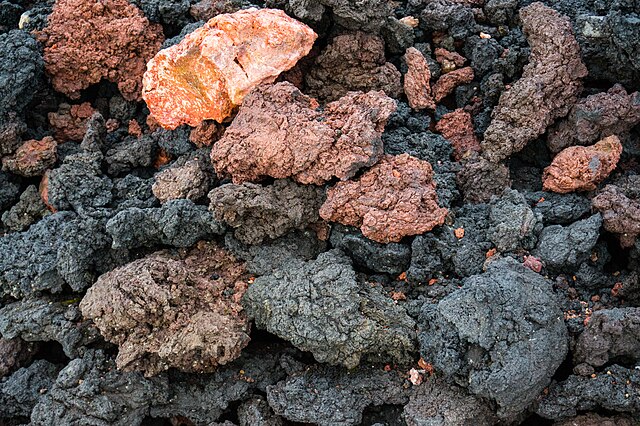
To limit global temperature increases to within 1.5 degrees Celsius by 2100, the world must find effective ways to remove 100 to 1,000 gigatons of carbon dioxide (CO2) from the atmosphere. A novel study proposes that farmers worldwide, particularly those in tropical regions, can play a vital role in achieving this climate target by incorporating crushed volcanic rocks, specifically basalt, into their fields.
This approach, referred to as enhanced rock weathering (ERW), accelerates the natural weathering process of rocks, capturing CO2 in carbonate materials, and holds the dual benefit of emissions removal while also enriching agricultural soil.
“Enhanced rock weathering poses fewer risks compared to other climate interventions,” S. Hun Baek, a climate scientist at Yale University who led the study, said in a news release. “It also provides some key benefits, like rejuvenating depleted soils and countering ocean acidification, that may make it more socially desirable.”
The research conducted by Baek and his team is pioneering, offering a comprehensive assessment of the potential for CO2 removal through crushed basalt application in agricultural fields on a global scale. While previous studies hinted at the feasibility of using rocks for CO2 removal, particularly in countries like China, India, the US, and Brazil, several challenges needed to be addressed. This new study delves into the specifics.
Utilising a biogeochemical model, the researchers simulated the CO2 capture potential of applying crushed basalt to croplands. Their simulations covered 1,000 agricultural sites spanning from 2006 to 2080, with findings indicating that these sites could potentially capture 64 gigatons of CO2. When extrapolated to encompass all agricultural fields, this figure escalates to a staggering 217 gigatons of CO2 removal.
The study underscores a crucial geographical factor—enhanced rock weathering is more effective in tropical regions, given the faster pace of weathering in hot and humid climates. Farmers and entities interested in investing in CO2 removal initiatives can make informed, cost-effective decisions by targeting basalt utilisation in tropical fields.
One promising revelation from the model is that ERW performs just as well, if not better, in warmer temperatures. This distinguishes ERW from other CO2 removal approaches that rely on factors such as soil organic carbon, which are less responsive to temperature variations.
“It’s relatively insensitive to climate change and works about the same under moderate and severe global warming scenarios,” Baek said.
The ease of transitioning to basalt utilisation is another advantage of ERW. Farmers already employ limestone, a calcium carbonate rock, in their fields to enhance soil quality and control acidity. This suggests that switching to basalt or similar rock types would require minimal adjustments, making it a practical choice.
However, it’s essential to note that enhanced rock weathering has been primarily deployed on a limited scale thus far. The logical next step involves scaling up these practices to harness their full potential in combating climate change and advancing sustainable agriculture.
“Our work provides additional support for the assertion that ERW represents a scalable, resilient carbon capture strategy that is non-competitive for arable land,” the researchers wrote in their paper. “Overall, this bolsters the case that there is tremendous potential for enhanced weathering to foster carbon dioxide removal at scale.”
——————————————————————————
At Natural World Fund, we are passionate about stopping the decline in our wildlife.
The decline in our wildlife is shocking and frightening. Without much more support, many of the animals we know and love will continue in their decline towards extinction.
When you help to restore a patch of degraded land through rewilding to forests, meadows, or wetlands, you have a massive impact on the biodiversity at a local level. You give animals a home and food that they otherwise would not have had, and it has a positive snowball effect on the food chain.
We are convinced that this is much better for the UK than growing lots of fast-growing coniferous trees, solely to remove carbon, that don’t actually help our animals to thrive.
This is why we stand for restoring nature in the UK through responsible rewilding. For us, it is the right thing to do. Let’s do what’s right for nature!
Donate today at https://naturalworldfund.com/ and join in the solution!

